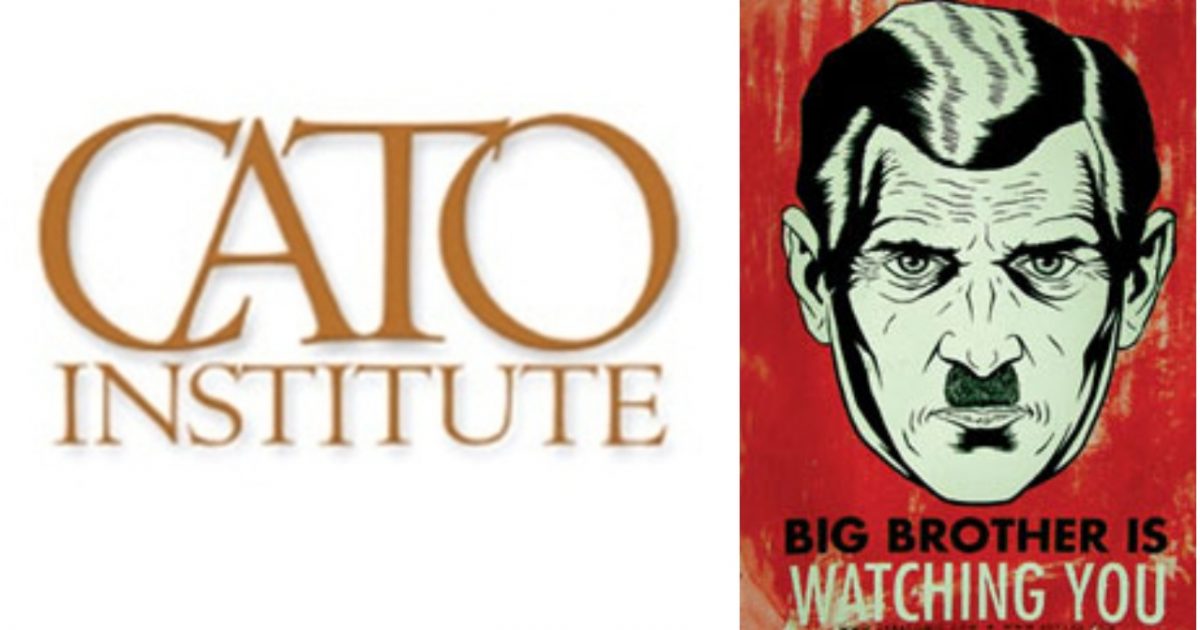
The Cato Institute, a Washington D.C. think-tank funded in part by globalist oligarchs David and Charles Koch, has formally endorsed the notion of a cashless society that would enable centralized government control over the entire economy on an unforeseen scale.
Economics professors Michael D. Bordo and Andrew T. Levin wrote a white paper for the Cato Journal titled, “Improving the Monetary Regime: The Case for U.S. Digital Cash.” They argue that digital cash is necessary so the “Federal Reserve can provide sufficient monetary stimulus to preserve price stability.”
“Our analysis indicates that the Federal Reserve should take active steps to establish digital cash as the fulcrum of the U.S. monetary system,” the Cato analysts wrote.
Although they do not propose explicit banning the use of paper cash, they admit that their proposal would phase it out and eventually lead to a digital-only system where paper currency becomes a thing of the past.
They wrote: “Once digital cash becomes convenient and ubiquitous, the demand for paper currency will rapidly diminish.”
The analysts confusingly claim that digital paper money would “foster true price stability” while admitting that a cashless system would allow the central bank to inflate currency instruments limitlessly.
“Paper cash pays zero interest and hence limits the extent to which a central bank can provide conventional monetary accommodation by reducing nominal interest rates in the face of weak aggregate demand and persistently low inflation,” they wrote.
The Cato economists argue that there should be a market of sorts for digital cash competitors competing among each other to secure deposits, but with government regulation playing a role as well.
“In effect, the provision of digital cash would be similar to that of many other public goods such as water, electricity, and transportation,” the analysts wrote.
The economists argue that “digital cash accounts can bear interest at essentially the same rate as Treasury bills, thereby serving as a secure store of value.”
They also wrote: “Digital cash would facilitate the systematic and transparent conduct of monetary policy, thereby facilitating the effectiveness of the monetary transmission mechanism and enhancing the central bank’s accountability to elected officials and the public.”
Not much evidence, if any, is provided for these and other claims made throughout the corporate think-tank’s white paper. They readily applauded moves that the Federal Reserve and European Central Bank are making toward the implementation of digital cash (ie. the status quo), and urged these monolithic institutions to move even faster.
The analysts also proposed a taxation regime to charge fees punishing individuals not ready to comply with the new monetary authority.
“Small transfers — say, up to $100 per week for an individual or $10,000 for a small business — would be completely exempt from such fees. Moderately larger transfers would be subject to a nominal fee (e.g., 2-3 percent), roughly similar to the size of withdrawal fees at many ATMs and cash service fees incurred by many small businesses. And the largest transfers (say, over $5,000) would be subject to an even larger fee (e.g., 5-10 percent),” the economists wrote.
They also claim that the ability for central planners to easily enact negative interest rates would ensure “financial stability.”
“The central bank would be able to reduce the digital cash interest rate below zero, thereby preventing runs from other financial assets into digital cash,” the analysts wrote.
This commentary flies in the face of what is preached by adherents to Austrian economics, the school of economic thought commonly associated with libertarianism.
Ryan McMaken of the Mises Institute pointed out that a cashless society would result in mass chaos and calamity if the power grid and other key infrastructure were to go down.
“Going cashless makes an economy more fragile, and makes ordinary people sitting ducks whenever there is a natural disaster, or even worse disruptions such as wars,” McMaken wrote.
Austrian economist Thorsten Polleit noted that the cashless society would ruin freedom of choice for consumers in the marketplace.
“Banning cash is infringing on the freedom of citizens on a massive scale. In withdrawing cash, the citizen is bereft of choice for his payments. After all, the state has the monopoly on the production of money. There is no competition on cash. Thus, nobody but the state can satisfy the demand for money by citizens,” Polleit wrote.
The libertarian icon, retired Texas Congressman Ron Paul, has spoken out frequently about the evils of the cashless society for many decades. Virginia Fidler is another commentator who has cogently explained why eliminating paper money is so dangerous to privacy and liberty.
“The government, of course, is extremely interested in your spending habits. The taxing authorities use an electronic money trail to monitor your spending and ensure against tax evasion,” Fidler wrote.
“Your electronic purchase trail is nirvana to large corporations. Knowing your spending habits allows them to customize their ads to an ever-larger consumer base. They know what you need before you do and are ready to entice you with specials, sales and “act now” deals,” she added.
The Cato Institute, once an organization that was considered libertarian, has joined the dark side, perhaps quite literally.
Revelation 13:17: “And no one could buy or sell anything without that mark, which was either the name of the beast or the number representing his name.”
Whether wittingly or unwittingly, Cato is proposing a new monetary authority that would give central planners authority on a level never before seen. It cannot be supported by libertarians with an interest in limiting government power.



